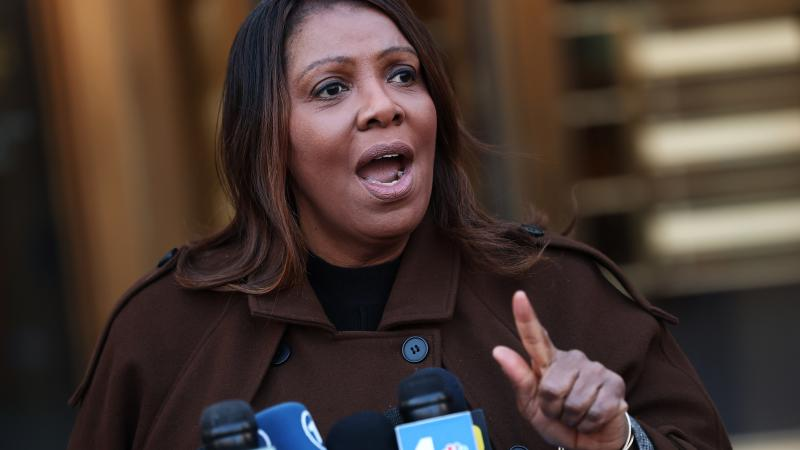That Space Force colonel in command in Greenland – well, formerly in command in Greenland – who ran her fool mouth to undermine her commander-in-chief demonstrates an all-too-common problem with today’s senior military officers. We keep seeing these passive-aggressive, and not so passively aggressive, officers acting out and throwing childish tantrums of resistance to the President that the people of the United States elected. It’s inconceivable to those of us from the military who won the Cold War; we stayed the hell out of politics. Somehow, they must have missed that civilian control block of instruction; non-partisanship is a vital principle of our officer corps. To be political on duty is a violation of our oaths. It’s a violation of our ethos as officers. And it’s got to be brutally crushed – even Barack Obama understood that when he properly canned General Stanley McChrystal for having a staff that thought it was okay to diss the President to reporters (incredibly, after this massive leadership failure, McChrystal has gone on to sell his leadership insights to eager civilian suckers, but that’s another story).
We simply cannot have a functioning military that tolerates individuals putting their own personal prerogatives ahead of the mission – and that’s exactly what this political posturing is. It brings to mind a story of my continuing dispute with my command sergeant major when I commanded a cavalry squadron. We rarely disagreed on anything; my CSM was that guy whose picture is scowling back at you, judging you, when you look up the definition of a noncommissioned officer. But every chow time in the field, we had a confrontation. One of us would note that the last of the soldiers had eaten, and then the argument would begin.
“Sir, time for you to grab chow.”
“After you, Sergeant Major.”
“After you, Colonel.”
It was the same dispute, every meal. Both of us wanted to eat last. That’s because leaders eat last. That’s because leaders put themselves after their troops. It was a point of pride.
Now, I led this way not because I was some super-duper, awesome exceptional officer. Every senior leader I knew did this, or at least every senior leader who lasted – there’s always a tail-end of the Bell Curve. If I were seen as putting myself before my soldiers or my mission, my peers would have done me in, never mind my commanders. We all understood our role. I was trained by real leaders, so doing something different never occurred to me. It’s not about you. Putting your politics first is a betrayal. That’s what babbling about politics to undermine your bosses’ boss is.
The fact that you are a senior leader, even when you are in a command position, does not make you the main character; save that for the personal psychodrama that is your life. Call it “servant leadership” or just plain leadership, but you never leverage the authority you’ve been entrusted with to pose, posture, or pontificate. That’s because your rank doesn’t belong to you. I get to use the honorific “Colonel” because I retired at that rank, but the silver eagle I wore never belonged to me. It was on loan. You Americans issued that rank to me so that I could do a job for the United States of America. It wasn’t mine. It wasn’t about me. It was never about me. And it’s incomprehensible to me and my generation of Soldiers (and Sailors, Marines, Airmen, Coast Guardsmen, and whatever the hell they’re calling Space Force people now) that many of today’s generation of senior leaders doesn’t seem to understand that basic concept.
Your politics don’t matter when you are a military leader. At all. Politics have no place in the military. None. I was becoming more and more prominent politically and in the media as a civilian while I was becoming a senior field grade officer as a reservist, but I was actively apolitical around the troops. I never talked about politics on duty. I never asked about it or told anyone about it. You know the command sergeant major I mentioned? I have no idea who he voted for. None. That’s because he was a consummate professional, and I tried to be the same. When we put on the uniform, we did our job whether the President was named Reagan, Bush, Clinton, Bush again, or Obama.
But apparently, some officers these days think there is a Trump Exception to their duty as officers to be apolitical, just as there appears to be a Trump Exception to every other rule, regulation, norm, and standard in our society and government. They are wrong, and their utterly bass ackwards conception of their duties as leaders is poisonous to the organization. If you aren’t loyal to the commander-in-chief, who are you loyal to? Your own personal conception of right and wrong? Well, Soldier, you are in the wrong career field. There are a wide range of jobs you can do where you can freely share your thoughts about our political leadership and its policies, but being a military leader is not one of them.
What’s stunning is the sheer cheesiness of their tiresome acts of resistance. The commander of Fort Igloo decided to throw away her career by mass emailing a cloying letter that emphasized how she didn’t support the political leadership’s initiatives re: Greenland. What was she thinking? Another officer at NATO headquarters refused to post pictures of the new commander-in-chief and vice-president, as is a rule on military installations. That’s almost too petty to believe (I initially did not believe it – too insane – but my sources tell me it’s true).
Sadly, some retired officers have supported this. Some are clowns, like perennial election loser Amy McGrath who embarrassed herself even more than usual by supporting this despicable lack of support of the civilian chain of command. But our expectations were always low for mediocrities like her; it’s very disappointing to see a legit Vietnam and Desert Storm war hero weigh in on the wrong side. General Barry McCaffrey tweeted, “A responsible Air Force commander. True to her oath of office.” This is heartbreaking, but the elderly McCaffrey, 82, is a solid Democrat and Clinton appointee whose X timeline betrays his full-blown Trump Derangement Syndrome. Still, that does not excuse his selective toleration this revolt against the chain of command. One X commentor put it best: “Come on, general. If I was commanding a tank company in the 24th, you came by and expressed concerns, and then I told my troops ‘the concerns expressed by Desert 6 are not concerns held by this HQ’ that would just be all good in your book?” Of course not. Move over, Nagasaki – the 24th Infantry Division (Mechanized) commander in Desert Storm would have nuked that disloyal subordinate until she glowed – and been right to do it.
Not surprisingly, in light of the poor example of present and past leaders, other officers have gotten the idea that this is acceptable behavior. Some blast out emails essentially telling their subordinates to wait out the administration until they can return to the failed policies of the Democrats. And too many take to social media accounts that disclose their status as officers or NCOs to share their disapproval of the political leadership and hint – or outright state – that they will undermine their superiors’ orders.
At what point did someone give them the false impression that this was okay? Were they taught somewhere that the world was breathlessly awaiting their thoughts on American policy? Where did they get the idea that they have any right to interfere with the agenda of their elected leadership? Did it arise from toxic command climates where this behavior was tolerated or even modeled? Maybe it was taught in the military academies, which have become hotbeds of progressive indoctrination. Don’t get me started on the war colleges, where they don’t spend a lot of time studying war and instead focus on sanding the rough edges off rising-star colonels with classes about nonsense like DEI and seminars on how the weather is America’s greatest strategic threat, all so that these future generals don’t offend the civilians they meet while participating in the sacred ritual that is the “interagency process.”
There is, of course, a quick and effective means of setting the standard – or, in this case, resetting it. And Pete Hegseth is doing it. When you find someone who is failing to meet his or her obligations as a senior officer, you fire him or her. You do it immediately, like the SecDef did here. You don’t dither. You don’t equivocate. You don’t wait a couple of months until the brigadier general you detailed to perform an Army Regulation 15–6 investigation completes it. You fire the offender on the spot. And you consider firing his or her boss for allowing that kind of command climate to fester.
You also ensure that the relieved officer is retired at the rank where he or she last served satisfactorily, as opposed to the rank he or she wore when fired. Here’s a pro-tip: You didn’t serve satisfactorily if you were relieved for cause. And, where appropriate, you use the Uniform Code of Military Justice to prosecute those senior officers who violate the law and publicly embarrass the officer corps through their gross lack of professionalism. If you can bust a private for mislaying his M4, you can charge a colonel or general who breaches the most basic rules that govern our military organizations.
This is serious stuff. A military where officers feel free to undermine their chain of command is not a military; it’s a cluster fark. And a dangerous one – it doesn’t take a genius to know where it leads when military officer start thinking they know better than their civilian bosses. And we saw what happened when military discipline broke down and the chunky Chairman of the Joint Chiefs of Staff literally called our greatest strategic opponent – Hint: Our greatest strategic opponent is not climate change – and told the ChiComs he would collaborate with them should his President give him orders he didn’t deign to approve of. But for a pardon, that over-medaled hack would be converting large rocks into small ones at Fort Leavenworth.
It’s not outside the realm of possibility that I might be called back on active duty as a retiree for a short time to help out with rebuilding my beloved military – clearly, the situation is desperate. But if I do, during the time I’m wearing the uniform, you won’t hear a damn thing from me here or on Xabout what I think about politics.
We need a military that can win wars again. That will not happen until we first defeat the senior leaders who put their politics ahead of their duty.













